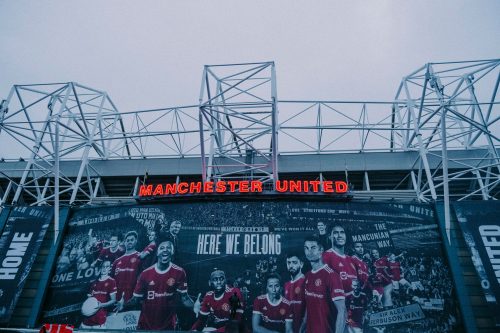Manchester United sees annual losses and net debt deepen

Premier League side Manchester United FC has recorded a bigger annual loss and seen its net debt soar, despite an increase in revenues for the year to June 30, 2022.
The club today issued its latest annual figures that revealed turnover of £583.2m, up from £494.1m the previous year.
Net loss for the year was £115.5m, compared with £92.2m in 2021.
The club’s net debt stands at £514.9m, up from £419.5m the previous year.
The club said the increase in net debt was mainly due to £64.6m of unrealised foreign exchange losses and a further drawdown on its revolving facilities of £40m.
Looking ahead, the club said it expects total revenues for the current fiscal year to be in a range of £580m to £600m, despite participation in the Europa League, and adjusted EBITDA to be in a range of £100m to £110m, reflecting the continued playing squad investment.
Cliff Baty, chief financial officer, said: “Our financial results for fiscal 2022 reflect a recovery from the pandemic, a full return of fans and new commercial partnerships offset by increased investment in the playing squad.
“Our results have been adversely affected by the absence of a summer tour in July 2021, material exceptional and increased utility costs, and the impact of the weakening of sterling on our non-cash finance costs.
“Looking forward to fiscal 2023, the club is guiding to revenues of £580m to £600m, despite participation in the Europa League, and adjusted EBITDA of £100m to £110m, reflecting the continued playing squad investment.”
Chief executive, Richard Arnold, said: “Our club’s core mission is to win football matches and entertain our fans.
“Since our last earnings report, we have strengthened our men’s first team squad, completed a successful summer tour, and established a foundation to build from in the early stages of the 2022/23 season under our new manager Erik ten Hag.
“We have also continued to develop our women’s team with an aim of reinforcing our position among the leading clubs in the Women’s Super League.
“Ultimately, we know that the strength of Manchester United rests on the passion and loyalty of our fans, which is why we have made fan engagement a strategic priority.
“While there is a lot more work to do, everyone at the club is aligned on a clear strategy to deliver sustained success on the pitch and a sustainable economic model off it, to the mutual benefit of fans, shareholders, and other stakeholders.”
Commercial revenues for the year were £257.8m, an increase of £25.6m, or 11%, over the prior year. Broadcasting revenues were £214.9m, a decrease of £39.9m, or 15.7%, primarily due to playing 22 fewer home and away games across all competitions compared with the previous year.
Matchday revenues were £110.5m, an increase of £103.4m, or 1456.3%, due to the return of fans to Old Trafford. In the prior year, all matches prior to the final home match of the season were played behind closed doors due to COVID-19 restrictions.
Employee benefit expenses for the year, or player wage costs, were £384.2m, an increase of £61.6m, or 19.1%, due to investment in the first team playing squad.
Other operating expenses for the year were £117.9m, an increase of £41.5m, or 54.3%. This includes the impact of all home games being played in front of a full capacity crowd and costs related to the increased activity at the Old Trafford Megastore. In the prior year, all but one home game were played behind closed doors.
Exceptional items for the year were a cost of £24.7m. This includes compensation due to the former men’s first team managers, certain members of the playing, coaching and scouting staff, and certain non-playing staff.
The cost also includes additional contributions the club expects to pay towards the Football League pension scheme deficit based on the latest actuarial valuation. Exceptional items for the prior year were nil.
The club also revealed that it incurred net finance costs of £62.2m, compared with net finance income of £12.9m previously, an unfavourable movement of £75.1m, mainly due to an unfavourable swing in foreign exchange rates resulting in unrealised foreign exchange losses on unhedged US dollar borrowings in the current year compared with unrealised foreign exchange gains in the prior year.







